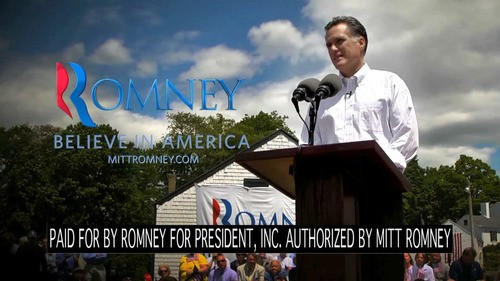Some TV Stations Will Now Reveal Who Is Buying Political Ads, How Much They Spent

Information about political television advertisements, such as who's buying them and how much they spent, must be posted online by Aug. 2, a decision ratifying a previous order from the Federal Communication Commission requiring major broadcasters to offer that information to the public as a means of promoting political transparency.
The order, published in the Federal Register on Thursday morning, was issued by the White House Office of Budget and Management. However, it doesn't apply to television stations across the board: Only the stations affiliated with the four major broadcast networks -- ABC, CBS, NBC and Fox -- in the nation's 50 largest television markets are required to oblige. Meaning, the remaining 160 media markets do not have to make that campaign advertising data available -- a decision that, as the Sunlight Foundation recently noted, means broadcasters in potential swing states such as Iowa, Wisconsin and Michigan will be exempted from the FCC decision.
Still, it's a major victory for advocacy groups who have spent years fighting for stronger transparency rules, particularly in an age where it is easier than ever for political super PACs and outside spending groups to protect the identify of their bankrollers. Currently, political ad information is technically available for public scrutiny but only through in-person inspection of paper files at each individual station.
The broadcaster's files are one of the few ways to see who exactly is funding ads by political groups that are not legally required to disclose their donors to the Federal Election Commission. For instance, nonprofits organized under section 501(c) of the tax code, including organizations such as the Planned Parenthood Action Fund and the National Organization of Marriage, can accept unlimited amounts of money for the purpose of influencing elections, without ever revealing where it came from.
The enormous influx of money in politics since the U.S. Supreme Court's 2010 Citizens United decision has made Americans concerned about the integrity of the electoral process, as several polls have indicated. But broadcasters have adamantly opposed the rule, arguing that publicizing their rates for political ad buys online would weaken their negotiating power with future advertisers.
Several major media companies lobbied hard against the measure, as ProPublica reported earlier this year, while House Republicans pushed for the addition of (ultimately unsuccessful) language to an appropriations bill that would have ordered no government funds be used to implement the disclosure rule.
The National Association of Broadcasters is suing to block the order, alleging in a lawsuit against the FCC that the disclosure requirement is arbitrary and capricious and would adversely impact NAB and the broadcasters whose interests it represents. The suit is pending.
The NAB spent approximately $13.9 million on lobbying costs in 2011, according to data available from the Center for Responsive Politics. Although the top six recipients of campaign contributions in the 2012 election cycle are all congressional Republicans, the group has donated almost as much to Democrats ($350,850) as Republicans ($381,600).
© Copyright IBTimes 2024. All rights reserved.





















